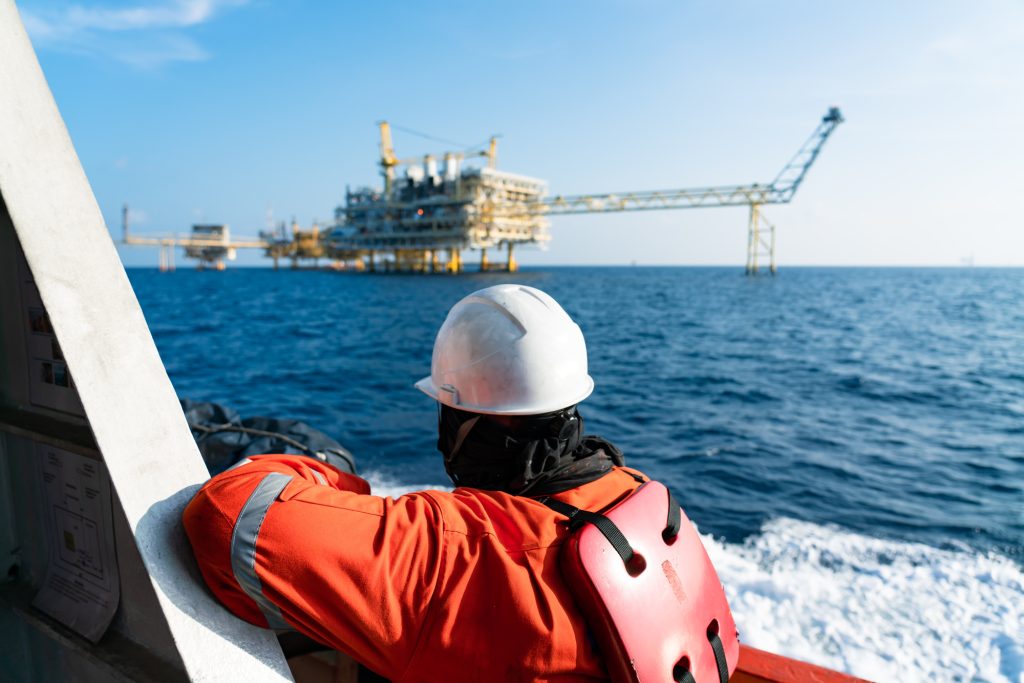Before vessel tracking technology, mariners used celestial navigation, dead reckoning, and landmarks for navigation. Celestial navigation involves angles between stars or the moon and the horizon. Dead reckoning estimated vessel position based on specific points but had inherent inaccuracies, especially on long voyages.
In the past, ships at sea were isolated from the rest of the world, using only visual signals like flags and lanterns. Communication over long distances was limited, preventing interaction until the ship reached its destination or encountered another vessel. The isolation made it challenging for ships to communicate changes in plans, emergencies, or market demands.
Without vessel tracking, ships faced difficulties alone, such as storms, piracy, or navigational errors. To find a missing ship, accidental encounters with other ships or washed-up wreckage were the only hope.
The absence of ship tracking technologies also resulted in ineffective port operations. The ports couldn’t prepare for ships’ arrival until they were sighted. Merchants and cargo owners faced problems in supply chain planning and inventory management due to the lack of visibility of goods upon loading onto ships.
On the other hand, as mariners ventured into the unknown with few tools, this period of maritime history was also characterized by adventure and discovery. Ship tracking has transformed marine operations, providing many benefits that continue to change how ships navigate the world’s oceans.
Here are some of the effects that vessel tracking has on maritime operations:
1. Safety at Sea
Vessel tracking systems enable maritime operators to monitor vessels by delivering real-time information about a ship’s position and trajectory. These systems are crucial in responding quickly to emergencies. They help in search and rescue efforts, saving lives and minimizing the environmental effects of catastrophes.
Meanwhile, adhering to international maritime regulations is essential, and vessel tracking makes it easier to comply with these standards. Vessels transmit automatic identification system (AIS) data, including important information like identity, location, and course. This information is essential for ensuring that ships follow regulations to prevent accidents at sea.
2. Operational Efficiency
Vessel tracking systems help make maritime operations more efficient. Ship operators can now estimate arrival and departure schedules to ensure cargo loading and unloading is on schedule. In addition, many major ports use vessel tracking to allocate resources such as cranes and workforce when large container ships arrive.
Vessel tracking systems are essential for optimizing maritime operations’ routes and schedules. Ship operators can use data analytics to make better decisions, helping them reduce fuel consumption. One way to prevent delays and save on operational costs is by adjusting a ship’s speed or route to avoid bad weather conditions.
Furthermore, vessel tracking helps authorities improve the management of ports. They can now estimate vessel arrivals, assign berths, and streamline cargo management. Reducing congestion minimizes ship wait times and expenses, making the supply chain more cost-effective.

3. Environmental Stewardship
Vessel tracking systems help ships follow designated marine protected areas and avoid sensitive ecosystems. For example, ships can use tracking data to avoid coral reefs, preventing environmental damage to these delicate areas.
Vessel tracking facilitates maritime environmental stewardship. It can track emissions, ensuring ships follow international regulations. On the other hand, ships can optimize their routes to save fuel consumption and reduce greenhouse gas emissions.
Ship monitoring can also help prevent oil spills and other pollution incidents. Authorities can enforce strict safety measures by monitoring tankers and other vessels transporting hazardous cargo. Furthermore, the system can inform the authorities to contain the spill if there’s an accident.
4. Security And Anti-Piracy Measures
Vessel tracking is essential to protecting ships and crew against piracy. Tracking devices installed on ships enable real-time monitoring. These tools allow authorities to detect and respond to unauthorized or suspicious activities. This capability is crucial, particularly in high-risk areas where piracy is common.
Meanwhile, authorities use technological advancements, like geo-fencing, to track vessels and create virtual security perimeters around ships. A vessel crossing this perimeter triggers an alert, allowing quick and focused action. Implementing these measures has deterred pirates and made maritime trade safer and more secure.
5. Search and Rescue Operations
Search and rescue operations at sea can be challenging due to time constraints and complexity. Tracking vessels improves the efficiency of these operations. Knowing the vessel’s location can help rescue teams respond more quickly when distressed. A quick response can save lives, especially in challenging weather or remote areas.
Vessel tracking systems also help coordinate search efforts between multiple vessels and aircraft. Sharing real-time data allows search teams to cover larger areas more effectively. This technology helps improve the chances of finding survivors or missing vessels.
6. Data-Driven Decision Making
In the digital age, vessel tracking provides crucial data that significantly enhances maritime operations. This data provides up-to-date information on vessel location, routes, and conditions, enabling operators to make informed decisions and improve their operations.
Vessel tracking data can help operators predict maintenance needs by monitoring ship performance. This proactive approach reduces downtime, prevents costly breakdowns, and enhances vessel reliability by identifying potential equipment failures and anomalies.
Vessel tracking aids in cargo tracking and inventory management. It can monitor ship arrivals and departures accurately. This efficiency aids in the timely unloading and distribution of cargo, reducing costs associated with inventory holding and preventing stock shortages. It also facilitates the timely delivery of goods to their intended destinations.
Ship monitoring data helps improve supply chain management by optimizing goods movement from factories to distribution centers and consumers. Companies can reduce transportation costs and delays and enhance customer satisfaction by analyzing historical and real-time information.
Tracking vessels helps transform maritime operations into ecosystems with valuable data, enabling real-time decision-making based on past patterns. This data-driven approach saves costs, improves efficiency, and enhances competitiveness by relying on precision and timely execution.
Conclusion
The success of vessel tracking has transformed marine operations. The maritime industry has significantly improved safety, operational efficiency, security, environmental responsibility, regulatory compliance, and search and rescue operations.
As technology advances, vessel tracking can continue enhancing maritime safety, sustainability, and management. These solutions help marine stakeholders secure the industry’s future and preserve the oceans for future generations.
This post may contain affiliate links, which means that I may receive a commission if you make a purchase using these links. As an Amazon Associate, I earn from qualifying purchases.

